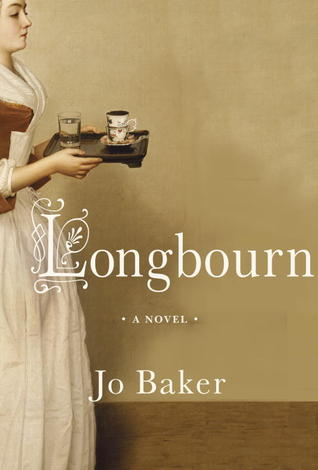My first impressions of this lovely novel by Charlie Lovett were more than favourable as I lost myself in this skilfully woven dual narrative of a modern young woman, Jane Austen, Pride and Prejudice, plagiarism, lo ve and so much more.
ve and so much more.
Book lover and Jane Austen aficionado, Sophie Cunningham, not only comes into an unexpected and bitter-sweet inheritance, but takes a job with an antiquarian book dealer in London. Grieving, confused about where her life is leading, but happy, as always, to take solace from books and the unexpected attentions of an American traveller, she has her suspicions aroused when two completely different customers request the same obscure and trifling book, the Little Book of Allegories, second edition by a Reverend Richard Mansfield, in a matter of days. One of the customers is the handsome and incorrigible Winston, the other a shady, threatening voice on the end of the phone, George Smedley, who promises Sophie a great deal of trouble if she does not fulfil his request.
Segueing back to 1796, the novel also follows the developing and touching friendship of aspiring young novelist, Jane Austen, and the octogenarian, Richard Mansfield. Sharing a love of words and stories, as well as confidences, Jane and Richard become very attached and propose to help each other’s ambitions by embarking on a literary project together.
In the meantime, Sophie’s efforts to locate the obscure book by the Reverend Mansfield unearth a potentially huge literary scandal involving Austen and the authorship of Pride and Prejudice. Torn between two very different men and their intentions towards her and the book she is tasked to find, as well as the dangers posed by Smedley and the threats he continues to unleash, Sophie’s search becomes a matter of life, death and literary reputations. Who can she trust and what will she do with the truth once she unravels it?
Lovett’s writing is delightful and you sort of fall into this charming tale and its captivating and quite riveting premise regarding Austen. It requires a complete suspension of disbelief which I had no trouble, especially in the first half of the book, performing. In fact, the parts of the novel focussed on 1796 are simply enchanting and Jane Austen and the Reverend make a wonderful pair and their project fascinating for all sorts of reasons. As a consequence, some of the action and decisions of Sophie and the events that occur in contemporary times lack lustre and a bit of conviction. The final parts of the book especially are weak by comparison and the plot doesn’t thicken so much as congeal.
The romance in the modern part is also an attempt, it seems, to mimic the Darcy/Wickham plot in Pride and Prejudice. I think it suffers by comparison with the original but there’s also a sense in which it doesn’t take itself too seriously. In fact, humour liberally peppers the modern section suggesting a joy and cheekiness as well as a homage to the greatest of romance plots, which also allows you to forgive its weaknesses.
But, what I loved most about this book (apart from having Jane Austen as a character and the lovely prose), was its unabashed celebration of writing, reading and books and the role stories play in our lives. How they enrich, educate, provide comfort, mystery and romance. Lovett is a bibliophile par excellence and his utter pleasure in books and reading is contagious. I found myself murmuring in agreement and gratification at some of the words and thoughts he allocates to characters regarding reading and authors.
Overall, a real pleasure to engage with and imagine.

 racters we know and love from Pride make an appearance, Lizzie, Jane, Lydia, Kitty, Mary, Mr and Mrs Bennet, Mr Bingley, Mr Darcy and Mr Wickham along with many others, it is those we’re not so familiar with, the characters who were mere whispers in the hallways, shadows in the corners of the rooms, absences that nonetheless made meals appear, cleaned the house, did the laundry, emptied chamber pots, drove the coaches, prioritised the needs of the upstairs family over their own and, in one barely memorable exchange, we’re told fetched shoe roses, who are centre stage in this book.
racters we know and love from Pride make an appearance, Lizzie, Jane, Lydia, Kitty, Mary, Mr and Mrs Bennet, Mr Bingley, Mr Darcy and Mr Wickham along with many others, it is those we’re not so familiar with, the characters who were mere whispers in the hallways, shadows in the corners of the rooms, absences that nonetheless made meals appear, cleaned the house, did the laundry, emptied chamber pots, drove the coaches, prioritised the needs of the upstairs family over their own and, in one barely memorable exchange, we’re told fetched shoe roses, who are centre stage in this book.


